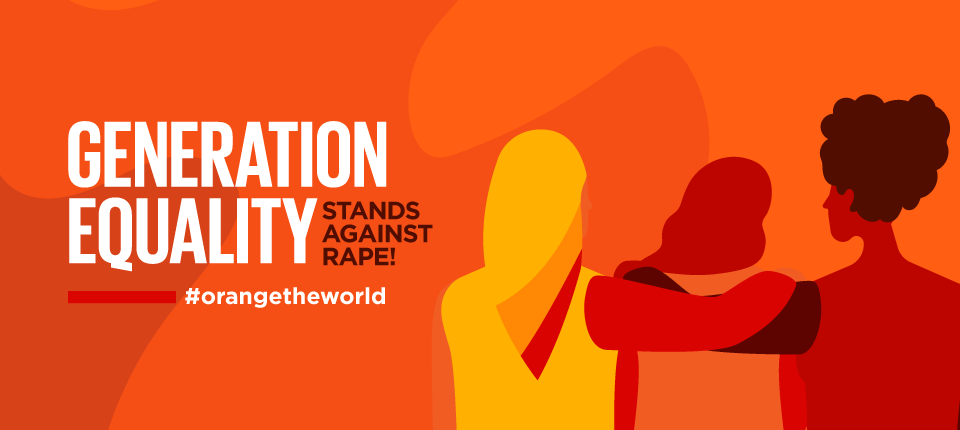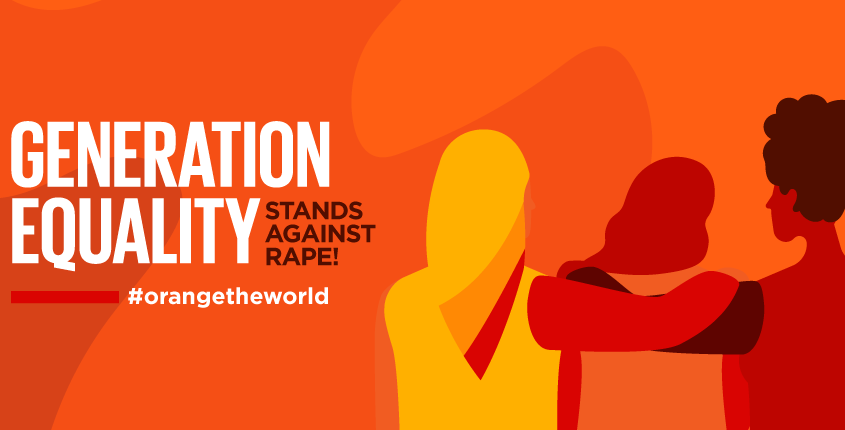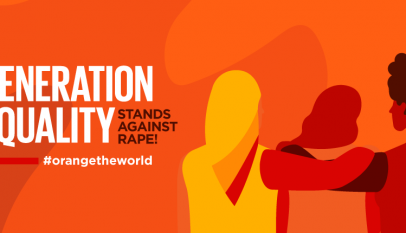EDITORIAL | Elimination of violence against women is everybody`s business!
In 1993, the United Nations General Assembly (UNGA) adopted the Declaration on the Elimination of Violence Against Women, as part of global efforts to end the pervasive infringement of women`s rights, yet; 1 in 3 women and girls – nearly 1 billion of global women – still have to endure physical or sexual violence in their lifetime

Every year, November 25, is recognized as the International Day for the Elimination of Violence against Women, aimed at providing a platform for individuals, governments, and civil society groups to raise awareness about the urgent need to end violence against women and girls around the world. The history of this day dates back to 1960, when the Mirabal sisters – four Dominican sisters: Patria, Minerva, María Teresa, and Dedé – were brutally assassinated for their firm stand against the dictatorship of Rafael Trujillo, who reigned in the Dominican Republic, between 1930 and 1961.
It was in honour of the Mirabal sisters and also for the sake of all women and girls suffering from various forms of gender-based violence that the United Nations General Assembly (UNGA) adopted resolution 48/104 of 20 December 1993, which describes violence against women as “any act of gender-based violence that results in, or is likely to result in, physical, sexual or psychological harm or suffering to women, including threats of such acts, coercion or arbitrary deprivation of liberty, whether occurring in public or in private life.”
Broadly known as Violence Against Women and Girls (VAWG), Gender-Based Violence (GBV) which manifests in various forms – physical, sexual and psychological – remains one of the most enduring forms of human rights violations in the world. The menace of VAWG encompasses girl-child marriage; sexual abuse and harassment; human trafficking and sexual exploitation of women and girls; as well as female genital mutilation. Sadly, despite its monstrous negative impacts on the physical, mental and social well-being of women and girls in society; VAWG largely goes unreported partly due to stigma and culture of shame surrounding it. Thus, allowing perpetrators to go scot-free without being made to face the wrath of the law!
This year, the global community commemorated the 2019 International Day for the Elimination of Violence Against Women under the theme: “Orange the World: Generation Equality Stands Against Rape,” which also marked the launch of ‘16 Days of Activism against Gender-based Violence’ running from November 25 through December 10, which is World Human Rights Day. The campaign seeks to spotlight the actions being taken to end rape and all forms of violence against women and girls around the world.
In recent years, the world has witnessed the springing up of a number of campaigns and movements against sexual harassment and rape, such as the Girls for Gender Equity (GGE) ‘#METOO’ movement which has spread virally around the world through the media, helping the survivors of sexual violence particularly women and girls find pathways to healing and rehabilitation. Consequently, the voices of thousands of rape survivors have been heard and can no longer be silenced or ignored!
According to the UN, 1 in 3 women and girls (nearly 1 billion women worldwide) will continue to experience physical or sexual violence in their lifetime, most frequently, by an intimate partner. Also, about 750 million women and girls alive have been married off before their 18th birthday while about 200 million others have reportedly undergone female genital mutilation (FGM) across the globe
VAWG is doubtlessly devastating to the lives of survivors and their families alike but it also comes with significant social and economic consequences. According to World Bank, GBV is estimated to cost up to 3.7% of the GDP of some countries of the world – more than double what most governments spend on education. Hence, VAWG has no social or economic boundaries and affects women and girls of all socio-economic backgrounds: it is everybody`s business!
Consequently, eliminating violence against women and girls requires a multi-pronged approach including stringent policies and laws on rape and sexual abuse as well as sustained engagement with multiple stakeholders – governments, women groups, and civil society. Entrenched societal norms such as the perception that women cannot be equal financial partners with men, negative gender roles, and the acceptability of violence and rape against women must come to an end!














